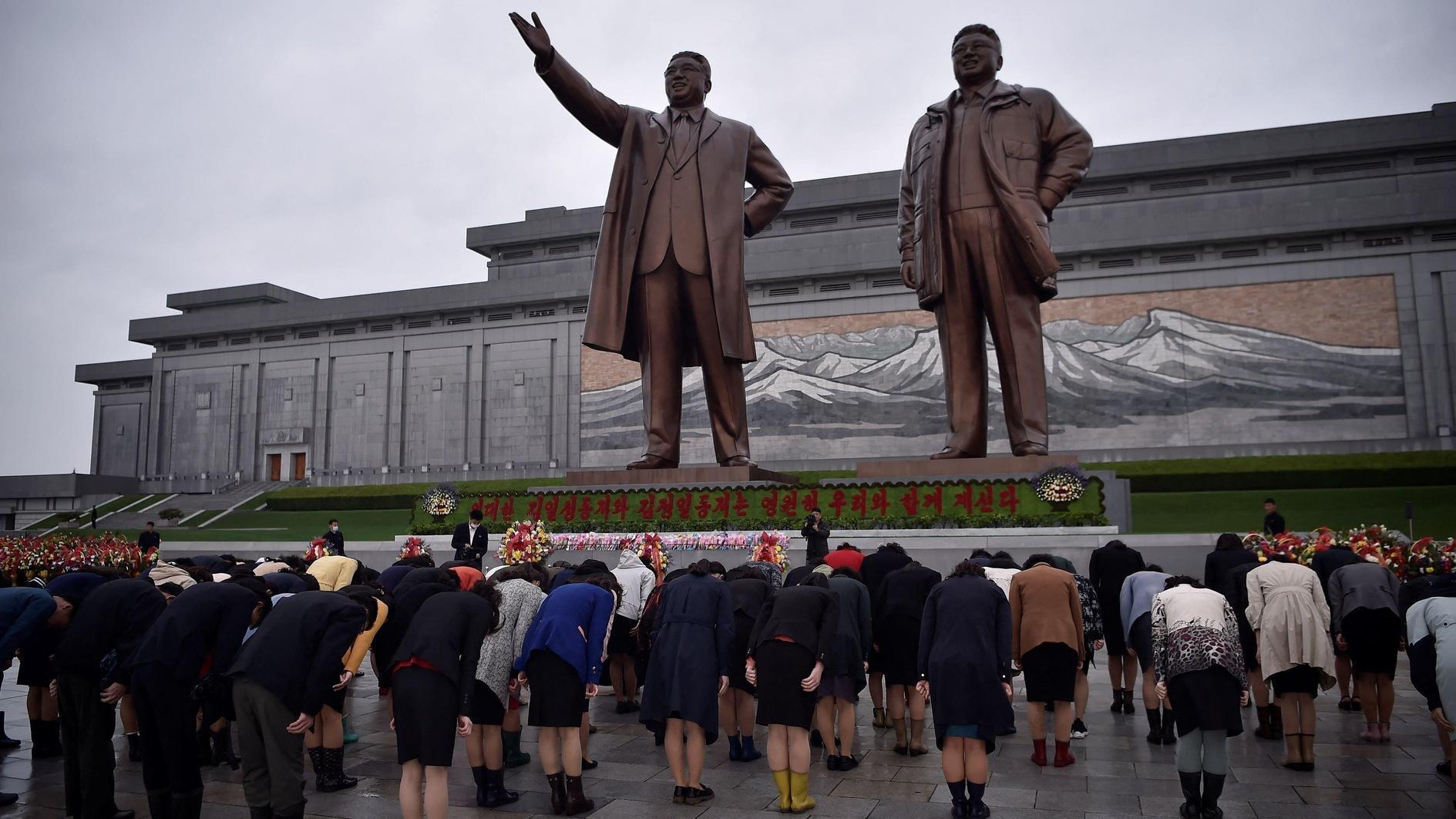
After fleeing famine in North Korea, Kim Cheol Ok laid low in China for decades — until a doomed run for freedom got her sent back to her repressive homeland, her family says.
She is among hundreds of North Koreans repatriated by China in recent months, according to rights groups, which say they face imprisonment, torture and even execution back home.
Kim Cheol Ok's family took the rare and risky decision of publicising her case after she vanished last year.
In a frantic farewell call, she "said that she would be sent back to... North Korea in two hours, and hung up," her sister Kim Kyu-li told AFP.
Neither she nor any other relative has been able to contact her since.
Thousands of North Koreans are thought to live illegally in China's northeastern borderlands.
Beijing sporadically rounds them up, but deportations ceased while the frontier was closed during the pandemic.
Pyongyang views unsanctioned border crossings as a serious crime and is believed to hand brutal punishments to transgressors.
"In North Korea, prison is a dangerous place," said Kim Kyu-li, who lives in London.
"A lot of people die."
Neither China nor North Korea have officially acknowledged Kim Cheol Ok's case.
But AFP corroborated her story via interviews with Kim Kyu-li, a lawyer campaigning for the deportees, and a source in China with knowledge of the case who spoke anonymously for fear of official reprisals.
'Severe punishments'
Following the reopening of the Chinese-North Korean border, an AFP team travelled to the area.
Chinese border police prevented the journalists from visiting four official crossing points, saying they needed special permits.
They included the town of Nanping, opposite the North Korean city of Musan, where Kim Cheol Ok is believed to have been repatriated.
But the reporters viewed nearby points of the frontier, where North Korean guards stood sentry in watchtowers and behind rows of sharpened sticks.
They saw North Koreans farming or lugging timber. One town appeared eerily empty, save for mournful music echoing off decrepit housing blocks.
Public notices on the Chinese side warned against communicating with North Koreans and vowed "severe punishments" for harbouring illegal migrants or smuggling.
Across the border, a giant North Korean propaganda sign looming over one settlement blared: "My country is the best!"
'Shoot on sight'
Tens of thousands of North Koreans have entered China in recent decades seeking better lives.
Beijing views them as illegal economic migrants — forcing many to push on to third countries to secure passage to South Korea.
But arrivals have declined since North Korean leader Kim Jong Un came to power over a decade ago.
During the pandemic, Pyongyang beefed up border security and imposed a "shoot on sight" policy, according to Seoul-based specialist outlet NK News.
Only 196 North Koreans made it to the South last year, down from a high of nearly 3,000 in 2009, according to Seoul's unification ministry.
Escapes fell to "almost zero" after Covid controls were imposed in 2020, said Sokeel Park, South Korea country director of the Liberty in North Korea rights group.
Those who made it out of China were likely already there before the pandemic, he said, adding that more deportations were expected.
'Hope she is alive'
China and North Korea are longtime allies and have stepped up diplomacy in recent months.
Beijing's foreign ministry said that it "appropriately handles... those who migrate illegally into China for economic reasons".
Pyongyang's embassy in China did not respond to a request for comment.
In London, Kim Kyu-li fretted over her sister's fate.
"I'm fighting with the hope that she is still alive," she said.
"Just as she survived in China at a young age, I hope she will survive (in North Korea) too."